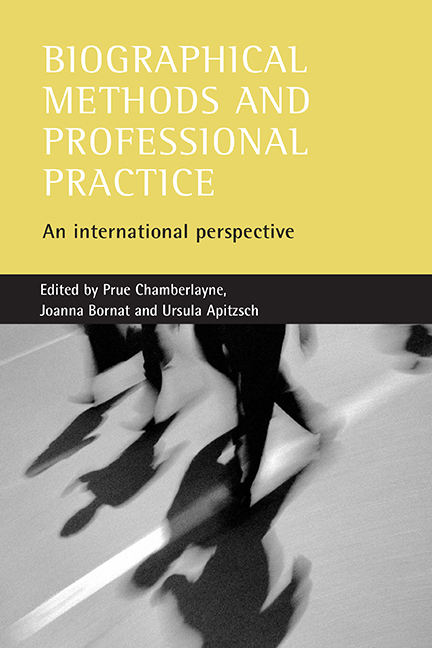Book contents
- Frontmatter
- Contents
- Notes on contributors
- one Introduction
- Part One Putting the subject into policy and practice
- Part Two Subjectivity in context
- Part Three Self-awareness in research and practice
- Part Four Recognising trajectories of disempowerment
- Part Five Biographical resources in education and training
- Index
eight - Professional choices between private and state positions in Russia's transformation
Published online by Cambridge University Press: 20 January 2022
- Frontmatter
- Contents
- Notes on contributors
- one Introduction
- Part One Putting the subject into policy and practice
- Part Two Subjectivity in context
- Part Three Self-awareness in research and practice
- Part Four Recognising trajectories of disempowerment
- Part Five Biographical resources in education and training
- Index
Summary
The impact of organisational structures is a much-discussed issue in Russia and elsewhere today; for example, state-run organisations, international companies, or small private firms on professional hierarchies. Positions are often ranked in relation to salary levels, social functions (such as service orientation and responsibility), issues of autonomy and control, type of management (such as degrees of hierarchy), and systems of social security (such as sickness and pension benefits) (Parsons, 1964; Balzer, 1996).
The subjective meaning of a professional career choice between ‘private’ and ‘state’ employment is usually considered in terms of a dilemma between more social security (in a state enterprise) and more career opportunities (in a private enterprise). Kivinen (1993) argues that, in the British context, more and more professionals prefer the private sector for its speedy response to new ideas and its promise of better financial rewards. Some scholars emphasise the political aspects of the dilemma. For example, researchers emphasise that state-sector employment in France enhances professional ‘autonomy’, ‘power’ and ‘success’ (Geison, 1984).
The cultural or, more precisely, moral differences between organisational structures in the context of Western Europe are often portrayed as opportunities in the state sector to exert more influence on societal transformation and the production process, as against more egotistical money and career opportunities in the private sector. The state can protect income and status. However, in some contexts, the professional can also deteriorate into ‘organisation man’ (Rosenberg, 1966). Yet, as Balzer (1996, p 6) suggests, in the 19th century Russian context:
The model of the civil servant as bureaucratic modernizer was a powerful alternative to the model of the free professional.
Presented in this way, the state–private dilemma affects the career, status and even the moral world of professionals, depending of course on the cultural context of a particular society. Nowadays, however, the difference is considered mainly as an organisational difference within one overall economic structure: that of the market economy.
In the case of contemporary Russia, the dilemma between ‘private’ and ‘state’ employment is more fundamental for several reasons. First, formerly Soviet professionals (or intelligentsia) knew only one system of employment – that of the state. As most forms of social welfare were provided by the state this entailed dependence on the state. For a professional, the position of ‘working for the state’ meant ‘service for the state’, which became the core point of both economic status and professional culture.
- Type
- Chapter
- Information
- Biographical Methods and Professional PracticeAn International Perspective, pp. 115 - 130Publisher: Bristol University PressPrint publication year: 2004



